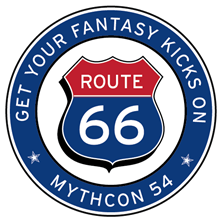Home > MYTHSOC > Mythlore > Vol. 41 (2022) > No. 2 (2022)
Abstract
In Terry Pratchett’s Discworld novels, children largely refuse to conform to the ideas that adults form about them as a class. While the adults of the Discworld seem to regard childhood as a time of innocence and wonder, the children who inhabit Pratchett’s universe show themselves to be violent, cynical, manipulative, and naturally skeptical of any phenomena which they cannot directly sense. As such, when the beloved seasonal figure of the Hogfather, a former Winter Solstice deity transformed over time into a gift-giving fat man with a taste for sherry and pork-pies, is assaulted by entities who want to make human beings less fanciful, the Discworld’s anthropomorphic representation of Death takes it upon himself to keep up the pretense that the Hogfather is alive, well, and making his usual rounds. This is necessary because, as the novel argues, belief in fantasies is necessary for children to grow into functional adults – the child must start by believing in something relatively concrete, like a jolly fat man who delivers toys to children who behave themselves all year, in order to believe in abstract concepts like ‘justice’ and ‘mercy.’ Belief in figures like the Hogfather tempers the natural cruelty of children, teaching them how to live in harmony with one another as adults, but this belief must be encouraged through empirical evidence, since the children’s natural skepticism leads them to see through the pleasant illusions conjured for them by adults.
Creative Commons License

This work is licensed under a Creative Commons Attribution-NonCommercial-No Derivative Works 4.0 International License.


